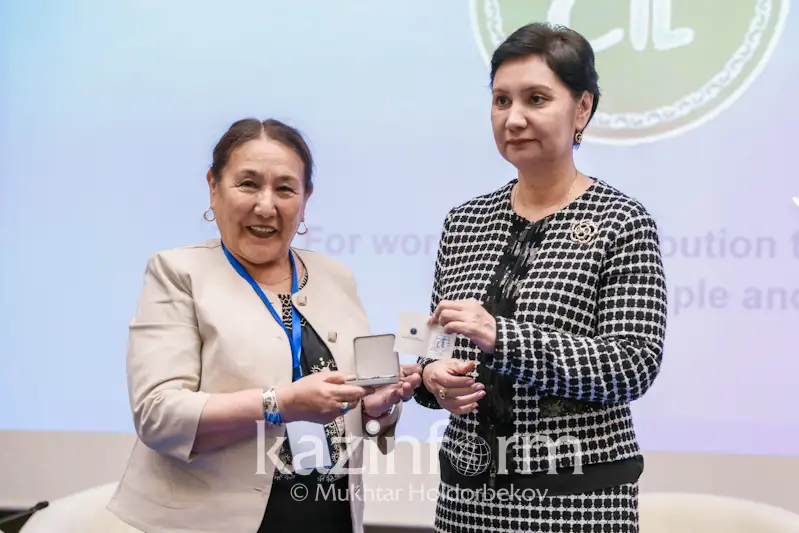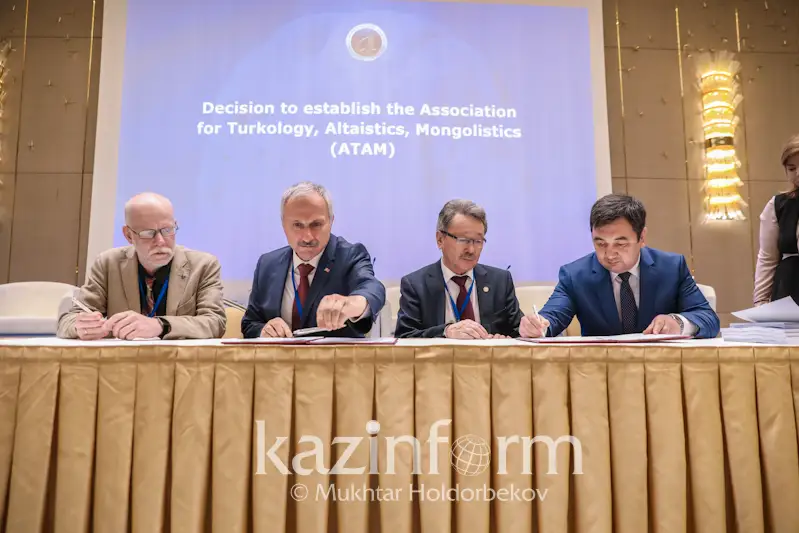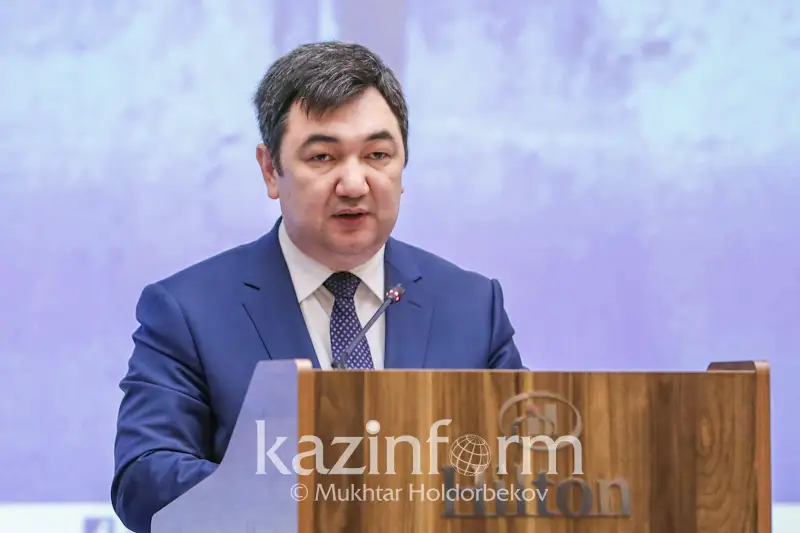Our main goal is to develop Turkic countries' competitiveness: Secretary of State

"Head of State Nursultan Nazarbayev said that, in view of the current challenges, it is necessary to promote our values within the framework of the Rukhani Janghyru Program (...) Only those countries which are ramping up their scientific potential will keep developing. We see that the development of spiritual and cultural values, the modernization of these values is the basis for the development of a state. Our main goal is to develop the competitiveness of the Turkic countries. In this regard, we build an intellectual nation. The communications and the technical background should meet the 21st-century requirements," said Ms. Abdykalikova.
 The Secretary pointed out that the Head of State has set a number of goals as to improving the competitiveness. For instance, "100 New Textbooks" project aimed at increasing the country's scientific potential is being implemented now.
The Secretary pointed out that the Head of State has set a number of goals as to improving the competitiveness. For instance, "100 New Textbooks" project aimed at increasing the country's scientific potential is being implemented now.
Gulshara Abdykalikova expressed confidence that the Forum will contribute to the development of the Turkic World. The work in this regard needs to be coordinated so that the fraternal Turkic-Speaking States could develop their values for future generations.
 Recalling the words of Bilge Khagan about the need for the development of the state, the Secretary of State underscored that Kazakhstan will continue the work on the development of the Turkic consciousness, the integration of the Turkic-speaking countries, and the further progress.
Recalling the words of Bilge Khagan about the need for the development of the state, the Secretary of State underscored that Kazakhstan will continue the work on the development of the Turkic consciousness, the integration of the Turkic-speaking countries, and the further progress.
 The Forum is organized by the International Turkic Academy and dedicated to the discussion of President Nursultan Nazarbayev's Program Article "The Course into the Future: Spiritual Modernization" and the 20th Anniversary of Astana. It is attended by representatives of UNESCO, ECO Science Foundation, the Turkic Council, the TurkPA and other international organizations, well-known diplomats, state and public figures, heads of major research centers, scientists from Azerbaijan, Germany, Kyrgyzstan, China, Moldova, Mongolia, Uzbekistan, Poland, Russia, Tajikistan, and Turkey.
The Forum is organized by the International Turkic Academy and dedicated to the discussion of President Nursultan Nazarbayev's Program Article "The Course into the Future: Spiritual Modernization" and the 20th Anniversary of Astana. It is attended by representatives of UNESCO, ECO Science Foundation, the Turkic Council, the TurkPA and other international organizations, well-known diplomats, state and public figures, heads of major research centers, scientists from Azerbaijan, Germany, Kyrgyzstan, China, Moldova, Mongolia, Uzbekistan, Poland, Russia, Tajikistan, and Turkey.